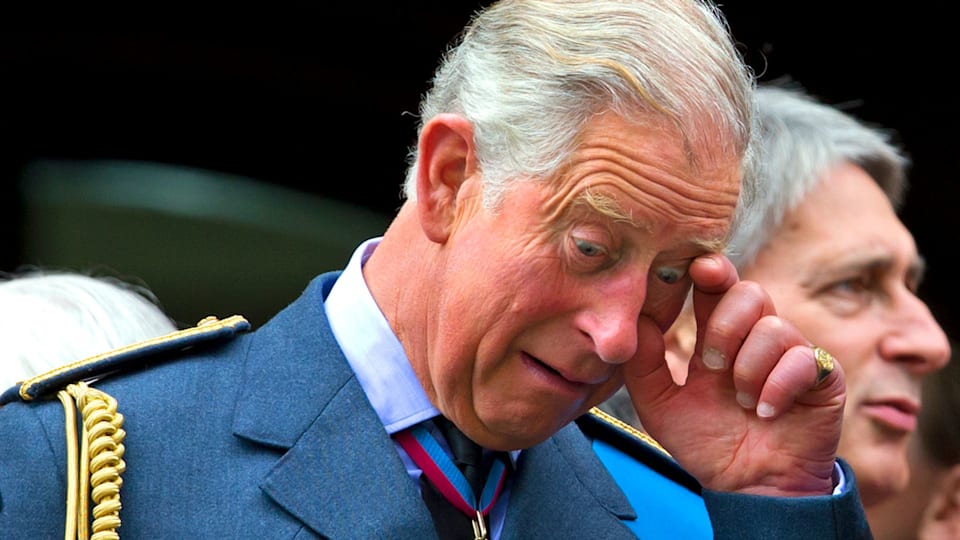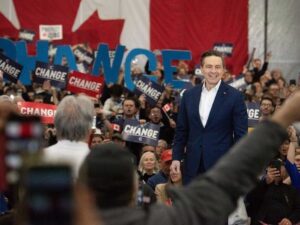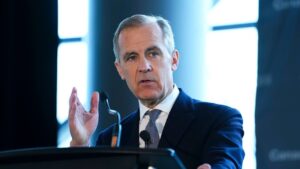
Most Canadians do not want to recognize King Charles as head of state, and opposition to swearing an oath to him, singing “God Save the King” at official ceremonies and putting his face on currency is even higher, according to new data from the Angus Reid Institute.
The not-for-profit research organization surveyed 2,103 Canadians, asking them how they felt about several aspects of the Monarchy, the Royals and Canada’s relationship with them.
While most Canadians polled (63 per cent) said in the past they viewed Queen Elizabeth II positively, they do not appear to share the same warmth towards Charles. According to Angus Reid data collected when Charles was still prince, 39 per cent of Canadians said in January 2020 they had positive impressions of Charles. Now however, only 28 per cent say they like him, and 25 per cent say they don’t have any opinions about him.
According to the survey, people over the age of 54 are more likely to have a positive opinion about Charles, while those under 35 years old are more likely to have the opposite impression of him.
When Elizabeth died, about half (48 per cent) of Canadians polled supported Charles taking the crown. Now according to the most recent data, 60 per cent oppose recognizing him as Canada’s official head of state. Similar proportions of people say they don’t want to swear an oath to him (64 per cent), sing “God Save the King” at ceremonies (64 per cent) and don’t want his face on Canadian currency (62 per cent).
Even among older Canadians, who are more likely to be enthusiastic about the Royal Family than other groups, fewer than 40 per cent support swearing an oath to him, singing “God Save the King” at ceremonies and putting his face on Canadian money. Most people across all demographics also oppose these recognitions.
More than half of survey respondents (52 per cent) said they think Charles will be a worse monarch than his mother, Queen Elizabeth II, while a meager three per cent said they think he will be a better monarch.
According to the Angus Reid survey, about half of respondents said they do not feel the Royal Family is relevant to them personally (49 per cent). Twenty-eight per cent said the Royals are becoming less relevant over time, and 20 per cent said they are just as important as they used to be. Three per cent said their importance is growing.
There also appears to be a correlation between people with ties to other Commonwealth countries or former British colonies and how likely they are to consider the Royal Family as relevant to them. Survey data shows those who were born outside of Canada in former British entities are the most likely to believe the Royal Family’s importance is rising (seven per cent).
Women are more likely than men to consider the Royals as relevant to them. However, regardless of demographic, the majority of people believe the Royals’ relevance is waning or completely gone.
Nearly half of survey respondents (45 per cent) say the Royals reflect outdated values, while only six per cent said they reflect modern ones, 24 per cent said they reflect both and 14 per cent said they reflect neither.
Since Elizabeth’s death, calls for Canada to do away with its ties to the Monarchy have grown. Bloc Québécois Leader Yves-François Blanchet brought forward a motion in October 2022 to do just that, but it failed in the House of Commons.
According to the poll, half of Canadians (52 per cent) agree with the Bloc motion to get rid of the Monarchy—a belief that has grown when compared with Angus Reid data from 2016. About one quarter of survey respondents (27 per cent) said Canada should continue to be a constitutional monarchy for generations to come.
People in Quebec (66 per cent) are most likely to say they want to cut ties with the Royals, while 34 per cent of Ontarians want to maintain the status quo, which is the highest percentage in the country, but still a minority opinion.
Indigenous peoples and those who identify as visible minorities are more likely to want to cut monarchal ties than others, according to Angus Reid.
Doing away with the Monarchy in Canada would require an agreement of the House of Commons, the Senate and all 10 provinces, in an “amendment of unanimous consent” to the Constitution.
The vast majority of Canadians (88 per cent) said severing ties to the Monarchy is worth it “even if it is difficult,” while 45 per cent say it’s time to change Canada’s Constitution and one third said the best move is no move at all—leaving Canada as a constitutional monarchy for generations to come.
Men older than 54 are the most likely to say Canada should change its Constitution and cut ties with the Royals.
As several Caribbean countries announced plans to ditch the Royal Family as their head of state, Angus Reid asked survey respondents how they felt about those countries’ decision to sever monarchal ties. Most Canadians (61 per cent) said it was the right call, while 11 per cent said those countries are making the wrong choice. Survey data also showed older Canadians were more likely to say it’s the wrong move.
Sixty-four per cent of people born in a Commonwealth country or former British colony other than Canada said severing ties is the right decision, and a similar proportion of Canadians who identified themselves as a visible minority said the same.
The coronation of King Charles will be the only time most Canadians have seen such an event in their lifetime. Queen Elizabeth II’s coronation was in 1953 — 70 years ago — it was also the first coronation that was televised.
Nearly the same amount of people who said they don’t want to recognize King Charles as head of state also said they will pay some attention to his coronation (59 per cent). About 30 per cent of respondents said they will catch up on what happened after the fact, 20 per cent said they’ll tune in to at least parts of it, and only nine per cent said they are “really looking forward to it,” according to the survey.
A majority of people in every province included in the survey said they don’t care about the coronation at all, the highest proportion being Quebecers at 55 per cent. Ontario had the most amount of people enthusiastic about the event, at 14 per cent. Women over the age of 34 are more interested in the coronation than any other group and they believe it is important, while men aged 35 to 54 are the most likely to be completely apathetic, the data shows.
Of the people who said they have some interest in the coronation, nine per cent said it’s one of the biggest events of the year, 28 per cent said it’s an important event “among many others,” and 22 per cent said it’s “not that important,” despite their own interest in it.
According to the survey, about one in four people in Quebec consider the coronation important—the lowest percentage of people in Canada.
Furthermore, people born in other Commonwealth countries or former British colonies are more likely to consider the upcoming coronation as either an important event or one of the biggest events of the year.
Usually, the wife of the ruling King is known as the Queen Consort, which is different than simply being referred to as Queen — a title traditionally given to those from the familial line of succession. Queen Elizabeth II said in February 2022 that her “sincere wish” was for Camilla to become Queen Consort when Charles took the throne.
But Buckingham Palace has said Camilla will only be known as Queen Consort to differentiate her from Elizabeth after her death, and after the coronation she will assume the full title of Queen — a move many consider to be controversial because of how Charles and Camilla’s relationship started.
Angus Reid data shows three in five Canadians think Camilla should not have the title of Queen in any form, while 21 per cent think she should be called Queen and 19 per cent think she should have the title of Queen Consort. Older Canadians are more likely to oppose Camilla gaining any title, perhaps, according to Angus Reid, because they remember the controversy surrounding Charles and Diana’s divorce, while younger folks are more likely to be OK with being called Queen or Queen Consort.
The data also shows Canadians — especially older ones — have overwhelmingly negative views of Camilla. In total, 54 per cent of people said they view her as unfavourable or very unfavourable, while only 18 per cent said the opposite and 28 per cent said they weren’t sure how they felt. Furthermore, 66 per cent of people said they do not want to see Camilla become Queen of Canada. Two-in-five Canadian women aged 35 to 54 (39 per cent) support her becoming Queen, the most among all groups.








